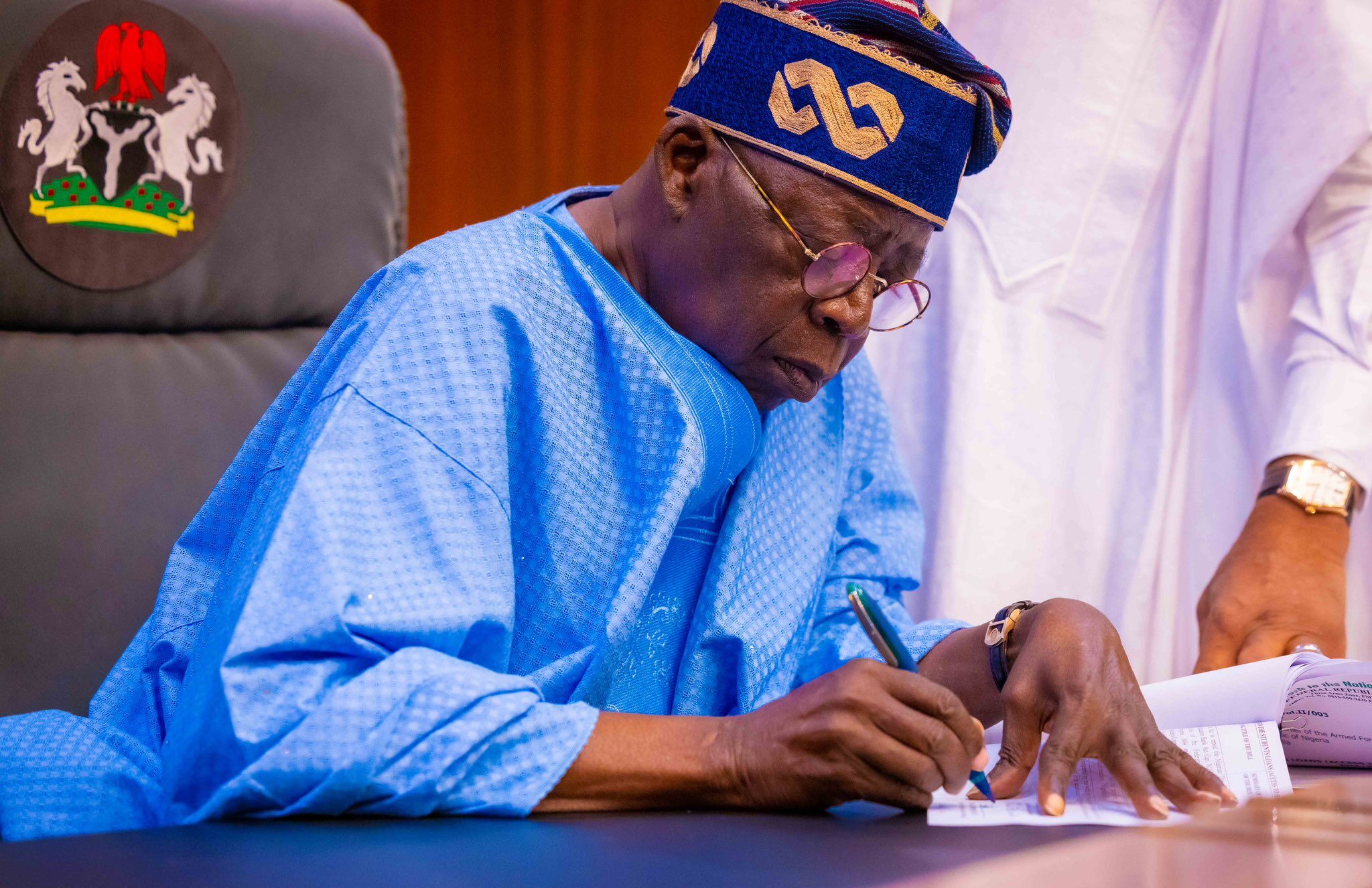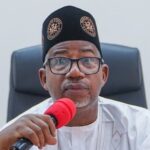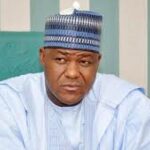President Bola Tinubu has asked for and received the approval of the national assembly for N500 billion to be used as palliatives. It is a thousand pities that the president has allowed himself to be persuaded to regress and take the inadvisable option of a trek down the same path in which hypocritic care for the poor was used as emotional blackmail to corrupt and ruin the national economy for many, many years.
His decision came as a huge and disturbing shock to those of us who enthusiastically applauded his courage to bite the bullet by letting fuel subsidy become instant history from May 29 when he assumed office. It was a courageous decision that blocked a major leakage in the national economy. It is a decision we expect the president to stand by and defend in our national interest. Sadly, he appears to have wilted in the heat of the groaning and given in to the persuasive do-gooders who care less for the poor but more for their pockets.
I thought palliatives became history at the same time with fuel subsidy. To see the nation dragged back into the palliatives regime takes something away from the courage the president showed in his instant response to the fuel subsidy that had had a strangle hold on the jugular vein of the economy for too long. Yes, there is pain in the land. It would be foolish to contest that.
Every major economic or political decision causes pain and distress to the populace. When the president took the decision, he knew only too well that there would be groaning and gnashing of teeth in the land. But he did what he did because the current pains will be a child’s play if we continued with a policy that bled the economy and enriched the few at the expense of the many. To roll back an important decision such as this is to give in to emotional blackmail. We cannot continue to do the same thing and expect things to change for the better.
- Why organisations should priortise mental health in workplaces – Pension operators
- Emefiele: Ex-NBA president, activists urge SSS to comply with court orders
Palliatives have a long history and like fuel subsidy nothing about its history smells roses. Like fuel subsidy the administration of palliatives regime was corrupt and became an instant source of wealth for the army of consultants and business compradors. Its beneficiaries were not the supposed poor and the vulnerable. Rather they were the same rich people who are not tired of making money.
A major part of the corruption in the Buhari administration was the administration of the palliatives regime. President Tinubu could not have been unaware of this. Perhaps, he needs to audit the palliatives regime under Buhari to see if his father Christmas generosity is what the country needs to renew its faith in governance and its political leadership. Tinubu must never forget that his contract with the people is hope renewal. You do not renew hope in a country down on the ropes without decidedly harsh and painful decisions.
We have been on this road for as long as anyone can remember. The president said 12 million households will be paid N8,000 a month for six months. There are 138 million people living below the poverty line. Will this payment make a dent in our level of poverty?
The money cannot help the poor. It cannot bring down transport fares and food prices. With it, the consultants will become richer and the poor for whose sake the palliatives have been put back, will continue to endure the pains of an economy that refuses to wear a human face and dispense the milk of human kindness.
The challenge before every federal administration is how best to tackle our national poverty. It has always been a choice between giving the people fish and teaching them how to finish. Every administration has so far opted for giving them fish. It did not stop poverty. Nigerians are creative and resourceful people. Giving them fish kills their resourceful and entrepreneurial spirit.
The woman who roasts corn and yams by the roadside is not asking for or waiting for handouts from the government because when the handouts dry out, she will have been taken that high and dropped with a thud. She wants economic policies that create opportunities for her enterprise.
President Obasanjo first came up with poverty eradication programme. He later changed it to poverty reduction programme. In both cases, the core policy was the same. A number of people were selected in each local government area and paid N3,500 a month. Both programmes neither eradicated poverty nor reduced it.
Recall that each time the prices of petroleum product were raised government sought ways to minimize its possibly crushing effect on the poor. President Ibrahim Babangida tried to institute a regime of fuel price differentials between commercial vehicles and private vehicles in the hope that if the commercial drivers bought fuel cheaply, they would reduce their fares and the poor would benefit. It did not work.
Obasanjo increased fuel prices three times in his eight years in office. His first approach to save the poor from being crushed by higher petroleum prices was for the federal and state governments to buy and sell commercial vehicles to bona fide transporters at subsidised rates. Cheaper commercial vehicles could logically make commercial vehicle owners charge cheaper fares. It did not work. The third time, he directed state governments to buy and sell Keke Napep to young men at subsidised rates. That too did not work.
All countries face the challenges of poverty among the people. Each nation decides on its best approach to it, but I am yet to hear of a nation that pulled itself up from the marsh of poverty with palliatives that offer only cosmetic and temporary relief to the people. India is a modern example of how a nation can determinedly tackle poverty. It pulled off its label as the poverty capital of the world. It did not do it with palliatives. It tackled the root of poverty and systematically lifted a number of people each year out of poverty. And Nigeria took over from it as the poverty capital of the world in 2017.
There has to be a more creative and pragmatic response to the poverty challenge by governments at the centre and the constituent states of the federation. Under this administration, we want to see less of the same and more of the new. Surely, throwing money at poverty has never reduced poverty anywhere in the world. History has no such record. To insist that Nigeria can be an exception wins our economic planners no laurels.
Palliatives will win applause, but it will solve no problems. It should not be impossible for the Tinubu administration to do things differently. The government needs to put certain things right. Our peasant farmers will return to their farms once they no longer fear bandits and kidnappers. Our petty traders and local transporters need to feel safe on the roads. The informal sector of the national economy is the province of petty traders and small businesses.
I expect the president to tell us what the nation saves from ending the fuel subsidy. He should then decide to use the saving to tackle some of the pressing national challenges such as insecurity. The late General Sani Abacha did so when he raised fuel prices. He used part of the savings to set up the Petroleum Trust Fund headed by Buhari.
It was the first time the people truly benefitted from fuel price increases. But for PTF, many of our inter-state roads would have turned into footpaths by now. Instead of retaining PTF as an interventionist development agency, Obasanjo scrapped it and set up the wasteful FERMA. Retaining PTF would amount to his applause for his arch enemy.
Tinubu can do even better with the savings from the fuel subsidy. He has men and women with the capacity to chart a new path for his government. Palliatives have run their course and should give way to a new thinking on how best to manage our poverty by creatively utilizing our petroleum wealth. Tinubu can halt the tradition of throwing money at problems. It is not the way to go to renew our hopes in our present and our future.

 Join Daily Trust WhatsApp Community For Quick Access To News and Happenings Around You.
Join Daily Trust WhatsApp Community For Quick Access To News and Happenings Around You.


